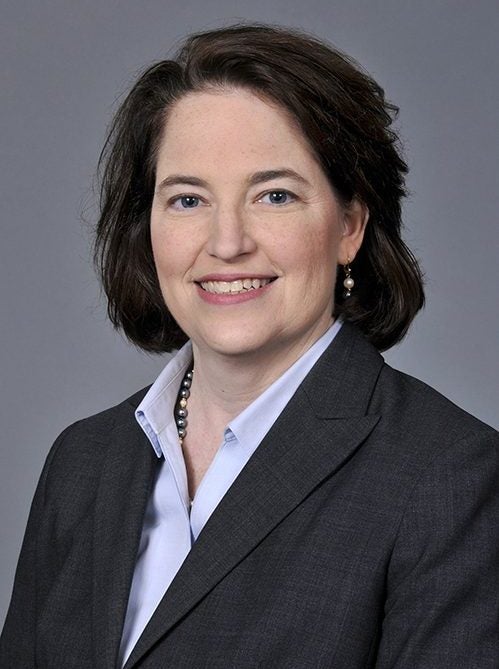Brody professor elected president of national family medicine organization
Dr. Chelley Alexander, chair of the Department of Family Medicine at East Carolina University’s Brody School of Medicine, has been elected president of the Association of Departments of Family Medicine (ADFM).
Alexander, also Brody’s Robert T. Monk Distinguished Professor, will lead the organization that is made up of family medicine chairs and administrators from across the country. She was elected during the group’s 2021 national meeting held in February and previously served as treasurer and program chair for ADFM’s Board of Directors. She will serve on the Executive Council in 2021 and then as past president for a year.

Dr. Chelley Alexander, chair of the Department of Family Medicine for the Brody School of Medicine at East Carolina University. (Photo by Cliff Hollis)
“I am honored to be chosen by my peers to lead the ADFM in its important work, and excited about the chance to significantly impact departments of family medicine on a national scale,” Alexander said. “ADFM influences every department of family medicine around the country, and through its leaders impacts our faculty, learners and patients all over the country, whether in teaching, research, or service. That is exciting to me.”
Alexander is nationally recognized for her work on value-based care and implicit bias. She has served as chair of Brody’s Department of Family Medicine since 2014.
The Association of Departments of Family Medicine (ADFM) is a national organization composed of close to 200 family medicine departments and represents institutional leaders within larger academic medical centers who are leading innovators in clinical care, medical education, residency training and research. The ADFM president and other officers work with other national family medicine organizations to provide vision, voice and leadership to the specialty of family medicine.
The Brody School of Medicine’s Department of Family Medicine is made up of 48 faculty members, 36 residents and graduate fellows in geriatrics, women’s health and sports medicine.
“I think ECU has always been a leader in family medicine. Our department has been recognized by the American Academy of Family Physicians as the number two family medicine department in the United States, based upon the percentage of graduating medical students entering into family medicine residency programs over the last 10 years,” Alexander said. “From the founding leadership of Jim Jones, our department has produced family medicine leaders in national organizations over the last 40 years. So, I think this achievement acknowledges in some way the national prominence of our family medicine program.”
As ADFM president, Alexander will meet regularly with leaders of the other major family medicine organizations around the country to discuss health policy and national priorities for family medicine.
“Family Medicine physicians are incredibly important for improving health and lowering the cost of health care around the country, especially in rural areas like eastern North Carolina,” she said. “I hope to work with departments around the country to increase the percentage of medical students that enter family medicine. I also think we have a lot of important work to do around implicit bias and structural racism and will continue to partner with other leaders in family medicine around the country to impact how we approach these issues in our departments and how we train our faculty, medical students and residents about it.”
Alexander also plans to increase awareness of Brody’s mission of producing physicians who specialize in family medicine and caring for patients in rural and under-resourced areas of eastern North Carolina and the state.
“I have a passion for changing the world for the better and for looking for ways to provide high-quality, cost-effective care to our most vulnerable patients. With 15 years of experience as a family medicine chair at schools with a rural health focus, I have had the opportunity to launch clinical initiatives, develop rural residency tracks, build patient-centered medical homes and work on health quality measures,” she said. “This national leadership position gives me the chance to use that experience to have a larger impact on family medicine nationally.”
The role places Alexander in position to stay up to date on the most recent clinical, pedagogical and research developments in family medicine through contact with family medicine leaders across the country. She will also have opportunities to address issues at the forefront of Brody’s mission, including recruiting and graduating underrepresented minorities as physicians and improving health in rural areas. As president, she will also work to influence national health policy.
While on a national stage, Alexander plans to remain focused on bringing national expertise back to eastern North Carolina—to recruit faculty and students and improve health care and access in the East.
“The Brody School of Medicine plays such a critical role in the health of eastern North Carolina and continues to fulfill its important mission of preparing primary care physicians for service,” she said. “We have incredibly talented faculty, first-class facilities, and an important mission. As ADFM president, I will be in a position to recruit faculty and students to our institution, further improving our ability to improve health in the region.”